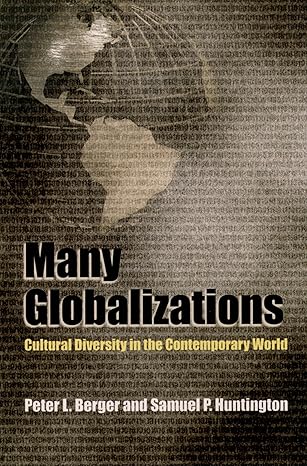Contents
Introduction
Cross-cultural psychology is a branch of psychology that examines the cultural factors influencing human behavior and mental processes. It seeks to understand how cultural contexts shape the ways individuals perceive, think, and interact. By comparing behaviors across different cultures, cross-cultural psychology provides insights into universal human traits and cultural-specific variations.
This field contributes to a broader understanding of psychology by highlighting the importance of cultural diversity in shaping psychological phenomena.
In this article, we explore the impact of cultural contexts on human behavior and mental processes through cross-cultural psychology. We examine how cultural diversity shapes psychological phenomena and discuss the importance of culturally sensitive practices in clinical psychology, education, and organizational behavior.
What Defines Culture?
Culture refers to the characteristics of a group of people, including attitudes, behaviors, customs, religious beliefs, and values passed down through generations. While cultures worldwide share similarities, they also display significant differences.
It encompasses the ways individuals interact, communicate, and interpret the world around them, influencing their daily lives and societal structures. Culture is passed down through generations, shaping identity and societal norms.
Guiding Principles and Convictions
- Values and Beliefs: Core principles and convictions that guide behavior and decision-making within a group.
- Customs and Traditions: Established practices and rituals that are regularly observed and celebrated.
- Language and Communication: The ways in which people express themselves and convey meaning, including both verbal and non-verbal forms..
- Art and Symbolism: Creative expressions and symbols that represent and reinforce cultural identity and heritage.
History of Cross-Cultural Psychology
| Period | Key Developments and Figures |
| Early Foundations | Initial exploration of cultural influences on behavior by Wilhelm Wundt and Franz Boas. Wundt studied cultural perceptions, while Boas examined cultural impacts on behavior. |
| 1910s-1930s | Margaret Mead and Edward Sapir explored cultural practices and their psychological effects, contributing to early cross-cultural studies. |
| 1940s-1950s | John Berry formalized cross-cultural methods; Geert Hofstede introduced cultural dimensions theory, studying work-related values across different cultures. |
| 1960s-1970s | Richard Nisbett and Harry Triandis expanded research on cognitive processes and social behavior shaped by cultural contexts. |
| 1980s-1990s | Fons Trompenaars and Hazel Rose Markus developed frameworks for understanding cultural differences in values and social behaviors. |
| 2000s-Present | Shinobu Kitayama and David Matsumoto focused on culture’s influence on emotional expression and social behavior in a globalized world. |
Types of Cross-Cultural Psychology
Cross-cultural psychology examines how cultural factors influence psychological processes. Here are four main types:
- Cultural Psychology: Investigates how cultural contexts shape psychological processes, such as behavior, emotion, and cognition. It highlights the importance of understanding cultural differences and similarities, promoting a more inclusive approach in psychological research and practice.
- Comparative Psychology: Focuses on studying the behavior and mental processes of different species to gain insights into evolutionary and developmental patterns. By comparing human psychology with animal behavior, it uncovers fundamental principles underlying cognition, emotion, and social interactions. This approach helps in understanding the biological and environmental factors that shape behavior across species.
- Indigenous Psychology: Emphasizes the importance of understanding psychological concepts within the unique cultural and historical contexts of indigenous peoples. It prioritizes the voices and knowledge systems of indigenous communities, advocating for culturally relevant and respectful mental health practices. This field seeks to empower indigenous populations by validating their traditional practices and integrating them into contemporary psychological frameworks.
- Ecological Psychology: Examines the dynamic interactions between individuals and their physical environments, emphasizing the bidirectional influence between them. It explores how environmental factors, such as space, design, and natural elements, affect human behavior, cognition, and well-being. This field also provides valuable insights for designing supportive and sustainable environments that enhance quality of life.
5 Theories in Cross-Cultural Psychology
| Theory | Core Concepts | Applications |
| Cultural Dimensions Theory | Individualism vs. collectivism, power distance, uncertainty avoidance, masculinity vs. femininity | Cross-cultural comparisons in values and behaviors, international business strategies |
| Acculturation Theory | Adaptation strategies (integration, assimilation, separation, marginalization) | Understanding immigrant adaptation, cultural integration policies |
| Cultural Relativism | Viewing cultural practices and beliefs within their own cultural context without judgment | Promoting cultural sensitivity, reducing ethnocentrism in research and practice |
| Social Identity Theory | In-group vs. out-group dynamics, social categorization, and identity formation | Addressing intergroup conflicts, understanding group behaviors and prejudice |
| Etic and Emic Approaches | Etic: Universal concepts applied across cultures; Emic: Culturally specific perspectives | Developing culturally sensitive research methodologies, interpreting psychological phenomena within cultural contexts |
Application for Cross-Cultural Psychology
- Improving Global Mental Health: Enhances mental health practices and interventions by considering cultural variations in psychological symptoms and coping mechanisms. For example, integrating traditional healing practices alongside Western therapy methods can provide more holistic care in diverse communities.
- Enhancing Multicultural Competency: Assists mental health professionals in developing skills to work effectively with clients from diverse cultural backgrounds. For instance, training therapists to understand and respect cultural differences in expressions of distress can improve patient outcomes.
- Informing Policy and Practice: Guides policymakers in creating culturally sensitive educational, social, and healthcare policies that address the needs of diverse populations. For example, implementing bilingual education programs can help immigrant children succeed academically while preserving their cultural identity.
- Fostering Intercultural Understanding: Promotes better understanding and communication between individuals from different cultural backgrounds, reducing prejudice and conflict. For example, cultural exchange programs in schools can foster mutual respect and empathy among students from different ethnicities.
What is the Impact of Cross-Cultural Psychology?
- Broadening Perspectives: Cross-cultural psychology opens our eyes to the diverse ways people think, feel, and behave across different cultures, enriching our understanding of human nature. This expanded perspective helps us appreciate the complexity and richness of human experience.
- Improving Global Communication: By understanding cultural differences, we can communicate more effectively and build stronger relationships in our increasingly interconnected world. This leads to better collaboration and mutual respect in both personal and professional settings.
- Enhancing Mental Health Practices: Incorporating cultural insights into mental health care ensures that interventions are more effective and respectful of individual backgrounds. This approach tailors treatment to fit cultural contexts, improving patient outcomes and satisfaction.
- Informing Policy Making: Cross-cultural research helps shape policies that are inclusive and equitable, addressing the unique needs of diverse populations. Policymakers can use these insights to create fairer and more effective social, educational, and healthcare programs.
- Boosting Multicultural Competency: It equips professionals in various fields, from business to healthcare, with the skills needed to navigate and respect cultural differences. This competence enhances service delivery and fosters positive interactions in multicultural environments.
- Fostering Intercultural Harmony: Promotes empathy and reduces prejudice, paving the way for more harmonious interactions between people of different cultural backgrounds. Understanding and appreciating cultural diversity helps mitigate conflicts and build peaceful communities.
Top Challenges in Cross-Cultural Psychology Research
- Cultural Bias: Ensuring that research and interpretations are free from cultural biases, such as ethnocentrism, which can skew results and misrepresent cultural practices.
- Methodological Differences: Adapting research methodologies to fit diverse cultural contexts without compromising the validity and reliability of the findings.
- Ethical Concerns: Navigating ethical issues such as obtaining informed consent and respecting cultural norms and values during research.
- Intra-Cultural Diversity: Recognizing and accounting for variations within cultural groups, which can be as significant as differences between groups.
Important books in Cross Cultural Psychology

Cultural Diversity in the Contemporary World

Handbook of Cross-Cultural Psychology 2013

The Price of Linguistic Productivity

The Cultural Nature of Human Development 2003

Culture and Psychology 2020

Cross-Cultural Psychology 2016

Psychology of Love & Death

Psychotherapy Fundamentals
Conclusion
Cross-cultural psychology provides essential insights into how cultural contexts shape human behavior, cognition, and emotion. By exploring these diverse influences, we can foster greater understanding, improve mental health care, and create more inclusive societies. These insights are invaluable in addressing global challenges and promoting intercultural harmony. As our world becomes increasingly interconnected, the role of cross-cultural psychology in bridging cultural divides and enhancing global interactions will only become more critical.
Bibliography
- [1] Berry, J. W. (1997). Psychology of acculturation. In J. W. Berry, M. H. Segall, & C. Kagitcibasi (Eds.), Handbook of cross-cultural psychology: Vol. 3. Social behavior and applications (pp. 291-326). Allyn & Bacon.
- [2] Hofstede, G. (2001). Culture’s consequences: Comparing values, behaviors, institutions, and organizations across nations (2nd ed.). Sage Publications.
- [3] Kitayama, S., & Markus, H. R. (1994). The cultural construction of self and emotion: Implications for social behavior. Emotion,
- [4] Matsumoto, D. (2006). Culture and psychology (4th ed.). Wadsworth Publishing.
- [5] Nisbett, R. E., & Norenzayan, A. (2002). Culture and cognition. Culture & Psychology, 8(3), 163-183.
- [6] Triandis, H. C. (1994). Culture and social behavior. McGraw-Hill.
- [7] Trompenaars, F., & Hampden-Turner, C. (1997). Riding the waves of culture: Understanding diversity in global business. McGraw-Hill.
- [8] Vygotsky, L. S. (1978). Mind in society: The development of higher psychological processes. Harvard University Press.
- [9] Wundt, W. (1904). Principles of physiological psychology. Engelmann.
- [10] Zukauskiene, R., & Kairys, J. (2006). Cross-cultural differences in values and behaviors: An exploration of universal and culture-specific aspects. Routledge.
